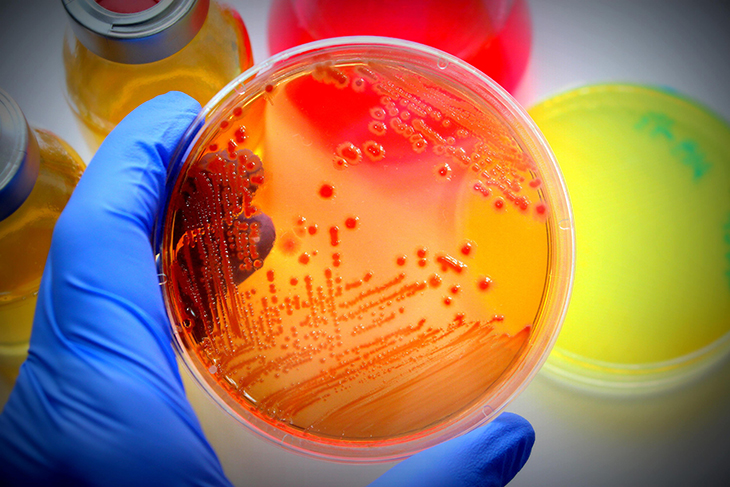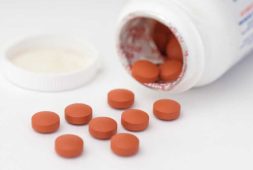
People need to be mindful of the food they put inside their mouth. If these aren’t washed properly, especially the vegetables, the greens can be contaminated with a strain of bacteria that can pose a danger to your health and wellbeing.
Health experts have always preached about cleanliness, especially in the restaurant business. Fast-food chains, in particular, are under a lot of duress because they need to cater to the needs of their customers quickly while making sure that quality of their meal is never sacrificed.
That’s because there are several strains of E. coli found and some of these strains can bring about sickness. Right now, health officials are working hard to identify the source of an ongoing E. coli outbreak that could be linked to the since-removed romaine lettuce that was served in Wendy’s, a very popular chain of fast-food restaurant.
There was an E. coli outbreak that happened in six states and this incident left a total of 43 people hospitalized while 97 others were left sick, even up to this day. These incidents were reported in the states of Indiana, Michigan, Ohio, and Pennsylvania. There were also recent reports that came from Kentucky and New York.
As for the food that was responsible for the outbreak, there hadn’t been a specific source that they pointed out just yet. However, when they asked the patients about what they consumed, many of them said that they had eaten lettuce on sandwiches from Wendy’s prior to when they felt the symptoms.
The experts from Centers for Disease Control and Prevention (CDC) needed to take precautionary measures and they are looking into the outbreak right now. Since then, Wendy’s has stopped serving the romaine lettuce on their sandwiches. As for the salads on their menu, they said that they have also used a different source of romaine lettuce for these.
Right now, the CDC is has put out an advisory and urged the people to stop eating at Wendy’s until they have fully removed the potentially contaminated lettuce from all their chains. As for the other sources of lettuce, they said that there’s no fear to buy these from the grocery stores because their sources aren’t the ones used in other restaurants.
“We are fully cooperating with public health authorities on their ongoing investigation of the targeted E. coli outbreak reported in certain states,” Wendy’s had said in a statement they recently made.
All About E. Coli
So, what exactly is E. coli? For those unfamiliar with it, this is a class of bacteria that is mainly found in the environments and intestines of people and animals. There is more than just one strain and many don’t pose much harm to your health. However, there are also strains that bring about sickness. This may vary from person to person and can show itself as a urinary tract infection, pneumonia, or even diarrhea.
Romaine lettuce and other fresh produce may contain E. coli when the irrigation water that is used when farming these become infiltrated with the bacteria. People may assume that washing is the answer, but that’s also not a reliable solution.
Signs of E. Coli
The symptoms of E. coli generally show themselves within three to four days after the food is consumed. Some stay home to recuperate while others stay in the hospital. More importantly, patients have reported to feeling better within one week.
As for the severe cases, the symptoms include:
- Diarrhea for three or more days
- Bloody and soft stools
- Constant vomiting
- Difficulty keeping liquids in
- A fever of 102 degrees Fahrenheit or higher
- Dehydration
- Feeling of nausea or dizziness when standing up
- Infrequent urination
- Dry feeling in the mouth
There is no specific treatment or cure for E. coli. For the patients who have been diagnosed with it, doctors often recommend that they take lots of fluid to rehydrate and to get lots of rest. This means that they may need to take a leave of absence for work until their bodies are fully rejuvenated. Health experts also ask you to avoid taking an anti-diarrheal medication for your sickness because these meds slow down the digestive system and thus preventing the body from excreting the toxins quickly and efficiently. Antibiotics are also not recommended because these increase the risk of suffering from serious complications. These meds also don’t do much for the infection.
If you are suffering from severe E. coli symptoms, it’s best to see a healthcare provider at the soonest possible time. It’s also important to report your what you feel to your nearest local health department.
You’ll also be asked to write down what you have consumed in the last seven days because the details will help public health professionals solve the issue on the outbreak and keep everyone safe at all times.



